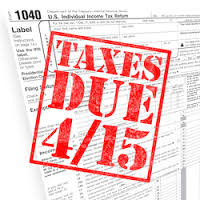IRS Targets International Businesses
Over the last few years, the IRS has faced many dramatic cutbacks which have caused them to decrease their services and drastically reduce the actual number of IRS employees. However, in spite of the downsizing, the agency is determined to collect the money they are owed, especially that owed by larger taxpayers. They have responded to slashes in the number of staff members by focusing most of their efforts and resources on going after the big guns while sweeping up any other delinquent IRS taxpayers they can find along the way. Using this creative approach, they hope to recover a large portion of the millions and billions of dollars that are dishonestly and fraudulently withheld from the IRS.
One of the changes recently announced by the IRS in response to the cutbacks is a focus on auditing businesses in the international division, which are some of the nation's largest taxpayers. This is part of their overall plan to spend most of their time and energy focusing on the larger tax issues which will potentially bring in more tax dollars. The agency is currently keeping their eye on such questionable international business transactions as the basket option, which is a cleverly designed tax loophole whereby foreign banks are enlisted by hedge funds for the purpose of converting short term capital gains to long term gains in order to avoid the payment of higher short term capital gains rates. Since the short term capital gains rate is 39.6% compared to 20% for long term gains, practices such as basket option contracts result in a significant loss of tax revenue for the IRS. Therefore, such practices as this as well as other items on the IRS list referred to as the “dirty dozen” are being targeted by the IRS.
This is all part of a new plan by the IRS to kick into high gear programs designed to get the most money possible from delinquent taxpayers. A key component of this plan is improving the audit process. In the case of auditing companies involved in international transactions, the IRS must obtain enough detailed information and data to build a strong case against the taxpayer. The IRS agents going after these particular businesses have gone through a type of advanced IRS training that instructs them in how to obtain this necessary documentation. These new examination agents will conduct and resolve audits on a national level which is an overall change to IRS system and one which will affect any taxpayer selected for an IRS audit. As a result, taxpayers, especially those who own large companies or are operating internationally, would be well advised to stay on their toes. This means keeping all business related documentation and operating under the advice of an attorney or other tax professional who is experienced in the area of international tax law. The IRS is hunkering down on the big players that owe them money!
If you have tax questions or a tax debt you are unable to pay, our tax settlement professionals are happy to discuss your tax resolution options free of charge. For more information about our services, visit us today at www.professionaltaxresolution.com or call us at 877.889.6527. With over 16 years in the business of resolving tax debt, we have a thorough understanding of tax law together with the experience to know which settlement option will be the best fit for your specific set of circumstances.
.





